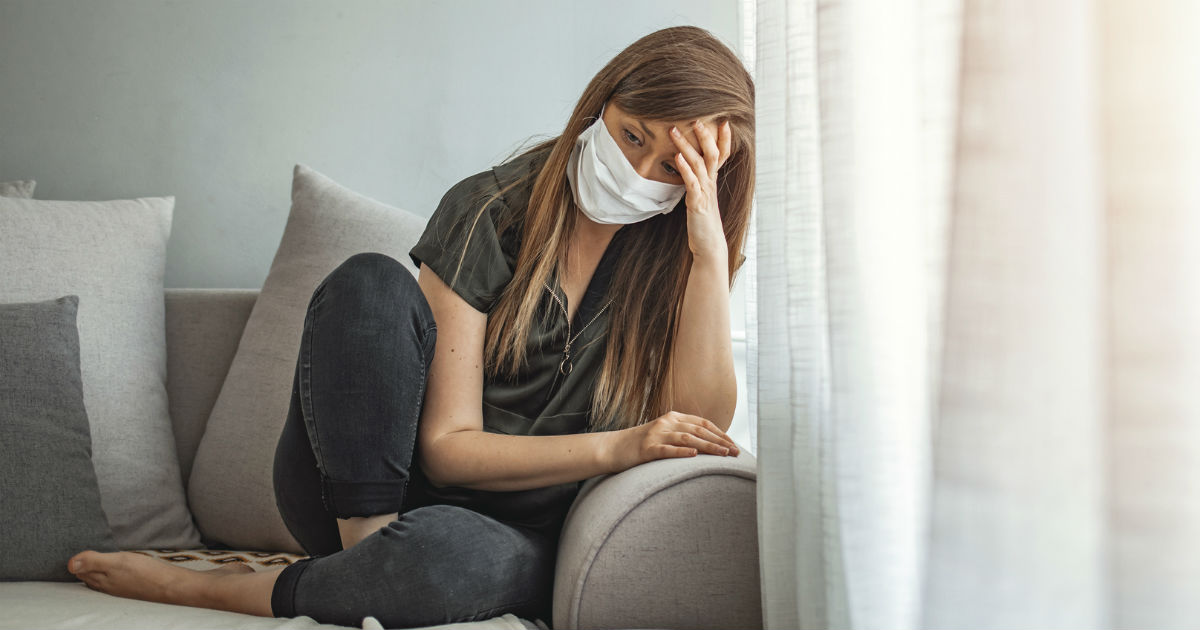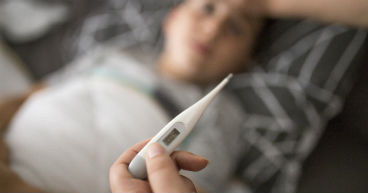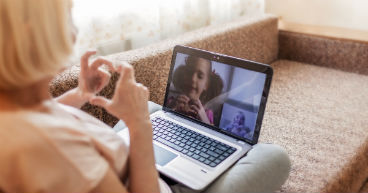
Cancer patients, like many who are at high risk of infection, have been urged to stay inside and limit contact with others during the COVID-19 pandemic. Distancing yourself from others has been an instrumental tactic in avoiding the spread of COVID-19. But it likely also has disrupted your everyday routines, ramped up the stress and, in some cases, caused financial concerns.
While staying locked down, either alone or with family members or other loved ones, it may be difficult to avoid unhealthy habits such as smoking, drinking or binge eating. It may also make it easier to be sedentary. Slipping into these behaviors, many of which are common ways to deal with stress, may also increase your risk of getting cancer, or even a second cancer.
Elaine Smith, MS, LMFT, Behavioral Health Therapist at Cancer Treatment Centers of America® (CTCA), Atlanta, says the unknowns during a crisis throw us off by eroding the structure that dictates our daily life. While many have vowed to use the extra idle time during the quarantine to exercise, eat healthier and stay connected with loved ones, it’s human nature to let frustration, boredom and fear build to a point that unhealthy lifestyle choices feel like appropriate coping strategies, especially as the pandemic stretches from weeks into months.
“You may get into a habit of staying up late watching TV, smoking cigarettes that you may have quit, or grabbing a glass of wine that turns into two,” says Smith. Don’t waste time shaming yourself or feeling guilty, she says, but instead, try to redirect your goals. Consider these tactics:
- Come up with one or two things you can do each day to help yourself stay healthy and engaged in your cancer fight.
- Join an online group, via video conferencing technology, and listen to other patients’ tips on coping.
- Think about whether you’re doing enough physically. Exercise doesn’t have to be strenuous. Consider online yoga, chair yoga or five-minute relaxation yoga.
- If physical exercise isn’t possible, consider an emotional exercise like writing in a journal or meditating.
- Practice mindfulness to reduce anxiety or put yourself to sleep at night. Focus only on the here and now without judgment. Practice keeping your mind from looping what-ifs. Think only about today. Today is going to become yesterday, and trust that you’ll enter tomorrow in a state of connection, control and peace.
- Practice therapeutic breathing, a technique designed to reduce anxiety brought on by a wandering mind. To do this, sit for three minutes and breathe in relaxation and breathe out tension in your own natural cadence. When you have a thought, don’t pursue it. Recognize it, and say, ”not now,” and return to breathing.
- Ask yourself if you’re depressed or just bored. If it’s the latter, give yourself some grace. Acknowledge that overeating, drinking too much or smoking may provide comfort, but it’s not helping you. If you’re not sleeping well and are also experiencing chronic feelings of irritability, fear or hopelessness, you may be depressed. Smith suggests talking to professionals, many of whom are available via telehealth, who can offer coping suggestions or refer you to a psychiatrist if medication might be needed.
Smith suggests not focusing on how long the pandemic might last, but instead measuring things one day at a time. “First thing in the morning, think of how you’re going to approach this day,” she says. “Focus on a spiritual goal, an emotional goal and a physical goal for that day, and only that day. If we think a week or a month at a time, there’s all kinds of things that come up with treatment and recovery that slow us down. Energy levels ebb and flow, but each day, we can control our mood and physical behavior, even if it’s just a walk around the block. At bedtime, review your day, explore your accomplishments for that day and what you’re thankful for, and that day becomes yesterday.”
If you’re a cancer survivor or in active treatment and are concerned about how COVID-19 may impact you or your care, please contact your care team.



